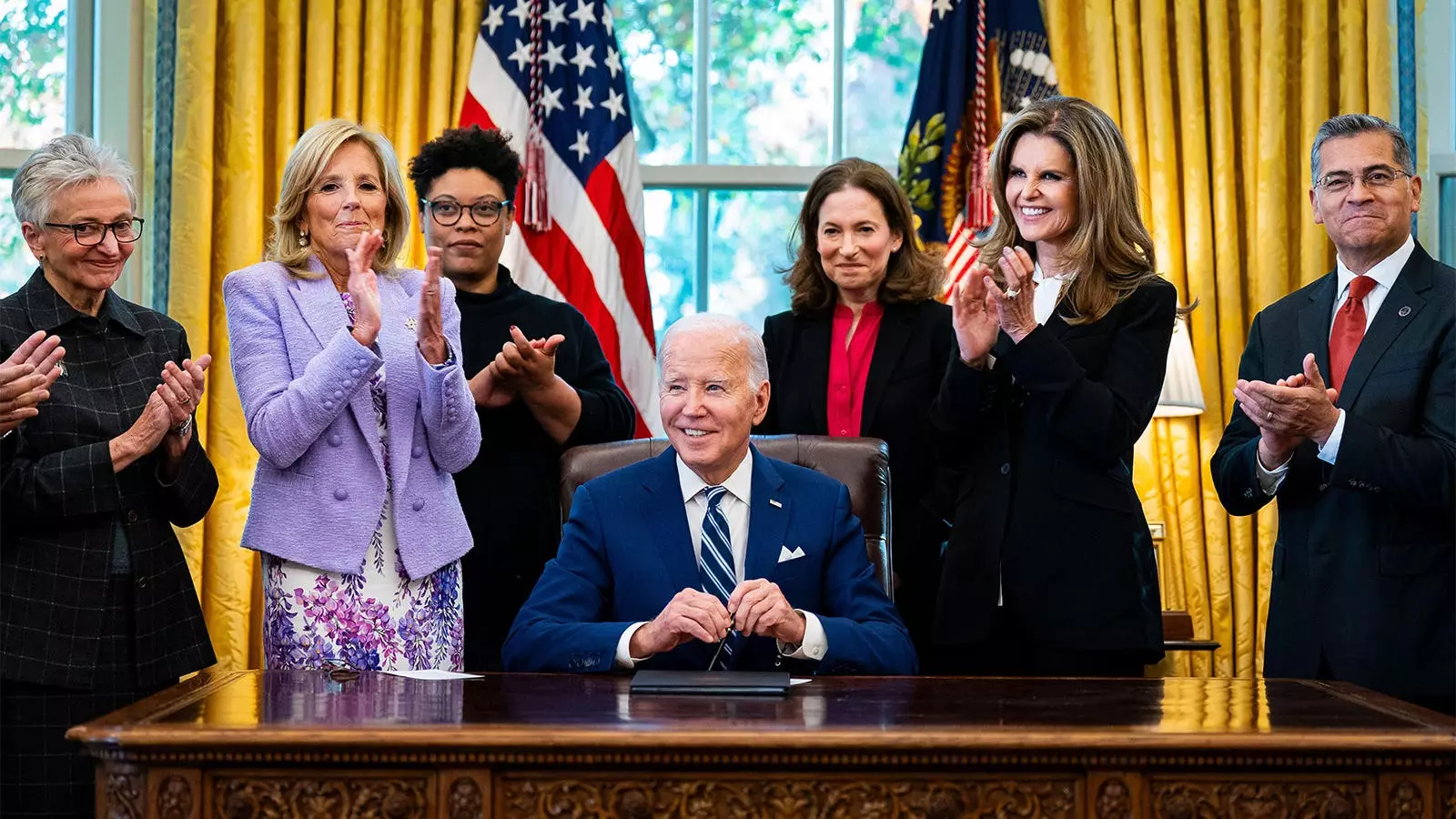Women’s health has long been a neglected and underfunded area of medical research. The lack of representation and resources dedicated to understanding and addressing women’s unique healthcare needs has had serious consequences for women’s well-being. In a recent comedy special, Amy Schumer shed light on this problem, highlighting the need for gender-specific research and the dire consequences of overlooking women’s health issues. Fortunately, the Biden administration has recognized the urgency of the matter and has established the “first ever” White House Initiative on Women’s Health Research. This initiative aims to close the research gaps and drive innovation in women’s health. In this article, we will explore the importance of this initiative and why it is crucial to prioritize and invest in women’s health research.
Women have been historically underrepresented in clinical trials and research studies, leading to a lack of understanding of their unique health concerns. This underrepresentation extends beyond reproductive health and includes conditions such as Alzheimer’s disease, rheumatoid arthritis, and even adenocarcinoma. The presentation of these conditions often differs in women, and the lack of targeted studies has resulted in misdiagnoses and mistreatment. Closing the gender gap in research is essential to improve health outcomes for women and ensure they receive appropriate care.
One of the fundamental issues hindering progress in women’s health is the failure to recognize that men and women are different at the cellular level. Approximately one-third of genes expressed differently in men and women, resulting in variations in clinical presentation, treatment options, and health outcomes. A systematic study of these sex-based differences is crucial to uncovering the causes of various medical conditions and developing effective treatments tailored to women’s biology. Erica Ollmann Saphire, president and CEO of the La Jolla Institute for Immunology, emphasizes the importance of studying these differences to advance medical understanding and improve patient care.
Cardiology provides a poignant example of the detrimental effects of neglecting gender-specific research. For years, heart disease was largely perceived as a “man’s disease,” leading to a lack of awareness and appropriate care for women. It was not until the mid-1980s that the medical community realized women were dying from heart disease at higher rates than men. Today, heart disease remains the leading cause of death for women and men, affecting over 60 million American women. The underrepresentation of women in cardiovascular disease clinical trials further exacerbates the disparities in diagnosis, treatment, and outcomes. By prioritizing gender-specific research in cardiology and other fields, we can save lives and improve the well-being of women.
Investing in women’s health research is not just a matter of equity; it has significant implications for public health and the economy. Women make up more than half of the population and workforce, and they are often the primary caregivers and decision-makers regarding healthcare. Yet, medical sciences have consistently underfunded studies focused on women’s health. The RAND Corporation’s Women Health Access Matters (WHAM) report highlights the economic benefits of closing the gender gap in research. It estimates that if women were to participate equally in the economy, global GDP could increase by $28 trillion, or 26%, by 2025. By underfunding women’s health, we have missed out on substantial financial gains and hindered overall societal progress.
While it is crucial to have women leading the charge for gender equality in healthcare, men’s involvement and support are equally vital. Women’s health is not solely a “women’s issue”; it is a matter of human rights, equality, and public health. Men must become outspoken advocates for equity and representation in women’s health research to ensure lasting change. Their participation in the Biden administration’s White House Initiative on Women’s Health Research will help amplify the message and drive meaningful solutions. Similarly, in the comedy world, voices like Amy Schumer’s have started to draw attention to the disparities in women’s health research, creating greater awareness and momentum for change.
The establishment of the White House Initiative on Women’s Health Research is a critical step towards closing the gender gap in healthcare. By recognizing the importance of gender-specific research, we can address the historic underrepresentation of women in clinical trials and studies. Investing in women’s health research is not only a matter of equity but also essential for improving health outcomes, advancing medical understanding, and driving economic growth. Men’s involvement and advocacy are key to ensuring sustainable progress in this field. Together, we can transform women’s health research, improve the lives of millions of women, and create a more equitable and prosperous society.


Leave a Reply